The UK’s approach to civil ship procurement is leaving Scottish yards at a disadvantage against heavily state-backed international rivals, the Scottish Affairs Committee heard in oral evidence on 16 July 2025.
Tom Chant MBE, Chief Executive of the Society of Maritime Industries, told MPs that while the defence sector provided a reliable base of work, the same could not be said for civil contracts. “In the defence world, that is a given, with all the activities previously mentioned. In the civil pipeline, though, that is something that really needs to be addressed. It is basically impossible to split apart the defence and civil shipbuilding worlds; they are totally connected.”
Asked by Elaine Stewart MP about the 72 per cent increase in UK shipbuilding output between 2019 and 2024, Chant pointed to both international and domestic factors. He highlighted disruption and opportunities arising from the Covid pandemic, as well as the launch of the Type 26 and Type 31 programmes. “It is not generally understood that 80 per cent of the value of a complex vessel will be the systems and components in it… for Scotland during that period, as the Type 26 and Type 31 work kicked into action, the local supply chain would have generated some more Scottish-focused benefits and turnover.”
Committee members pressed Chant on the effectiveness of the National Shipbuilding Strategy. He acknowledged its value for defence and some government projects, but said it had not delivered the same impact for civil contracts. “The simple answer to that is no… The defence work has always been ringfenced as a UK priority, and the NSO has been brilliantly successful in making the Border Force vessel bids and tendering a UK-focused procurement opportunity. But the rest of the government pipeline of roughly 130 vessels is open to international competition by default, which is such a lost opportunity for UK shipyards.”
Mr Angus MacDonald MP expressed concern that contracts were often awarded abroad despite the capability existing domestically. Chant pointed to the current Trinity House lighthouse tenders as an example. “There are certainly UK yards that would be very interested in that project. The SRO in charge of those types of projects is commanded to deliver the project within certain risk, timeframes and budgets. But it goes out to the international playing field of opportunities, and you get the feeling they think it is a level playing field while actually not understanding that all the state-owned and state-backed companies it is going towards are kind of buying the work.”
Chant argued that overseas competitors benefited from subsidised financing and government guarantees unavailable to UK yards. This created an imbalance, even when foreign bids were only marginally cheaper. “There will often be a delta of perhaps 10 per cent or 20 per cent in the pricing if it goes to an overseas yard, but that is forgetting that if you award a UK yard, all those taxes will come back to the UK. There is a well-known RUSI study that has recently been refreshed that looks at around a 36 per cent return on UK procurement back to the Treasury.”
He added that awarding contracts domestically also meant stronger through-life benefits, as vessels could be serviced and supported in the UK over their typical 30-year lifespan. “It is not just a one-off procurement; it is the next 30 years as well.”
The Committee will continue to take evidence on industrial transition in Scotland, including further testimony from Ferguson Marine’s Chief Executive Graeme Thomson.


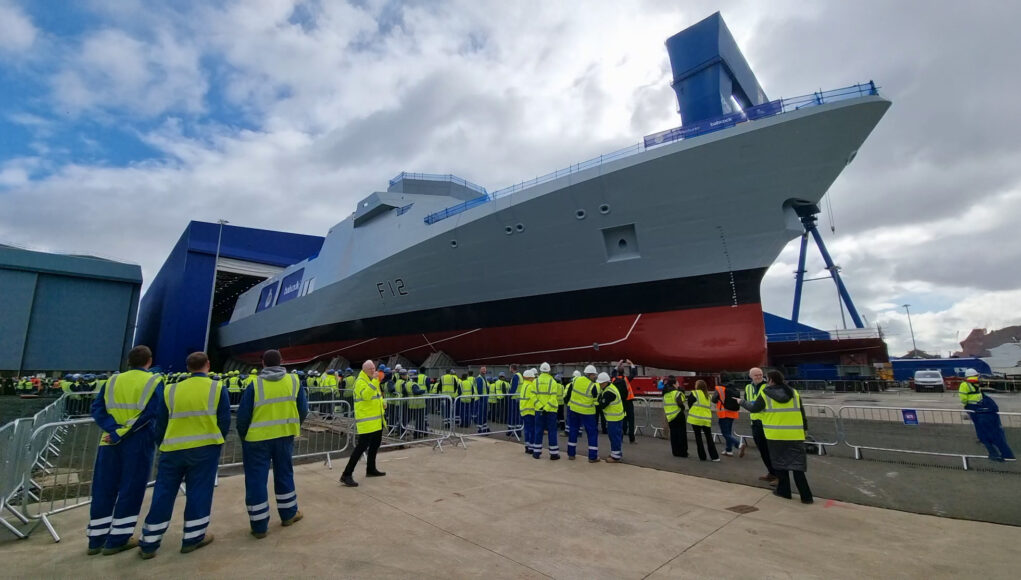
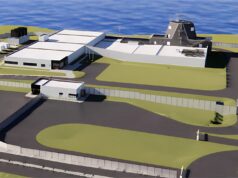
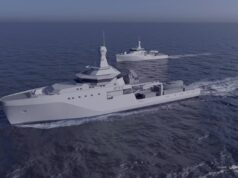
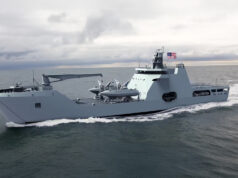
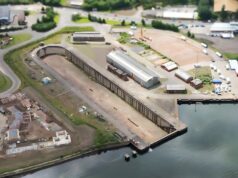
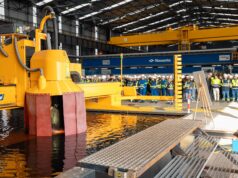


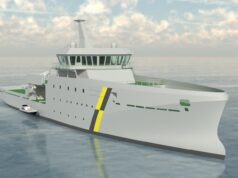

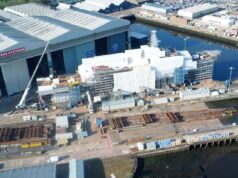

What nonsense, almost all of those 130 commercial vessels he is sighting are Ferries and none are under the British government and almost all of them are in Scotland. The SNP tried this and failed with Ferguson. Why should people on the islands be subject to yet more high prices and delayed replacements for yet another failed job creation program.
Multiple models or Ferry are required to cross everything from small rivers to open oceans, no single supplier will ever be able to meet demand, there is zero export potential in this and too small a portfolio with too great a need to replace old vessels.
Ferguson is still sitting there and now biding for defence work not Ferries for good reason.
Commercial ship building shut in all wealth countries for good reason. We should focus on what we are good at and that is warships and aerospace.
Not sure I completely agree Jim as ensuring you have warship construction is a core of any power, but the winners are those that succeed in an overall martime strategy. There is a reason the dominant world power for the last 300 years has essentially always been the dominant maritime power and whenever a land power tried to change that dominance it aways lost.
It’s one of the core reasons I think the west is in serious trouble to be honest. Its essentially abandoned maritime power and handed it to china. What has been forgotten is that warships are only one facet of maritime power and unless a nation can succeed across the triad of maritime power it will essentially lose to the nation that has fully embraced the triad.
1) Navel power..this is self explanatory it’s the ability to build and deploy warships where needed.
2) maritime trade.. this a a mix of the nations ability to build merchant ships, own and operate merchant ships, ports and port capacity as well as world wide trade networks.
3) maritime awareness..the understanding of the threats and opportunities from the maritime environment.
So in summary naval power and construction is just on element of the maritime triad. That is why china now has over 50% of the world’s shipbuilding capacity and 260 times the capacity of the US as well as investing in building around 130 foreign ports. It’s because essentially china has without anyone noticing become the preeminent maritime power and if the future follows history it will become in time the preeminent world power unless the west remembers what maritime power is.
Hi Jonathan, Spot on and probably the best examples are in WW1 & WW2, all 3 axis powers lost for exactly the same reasons.
1. Inability to consistently control and disrupt the Sea Supply lines of UK & US in Atlantic, Pacific, Med and Arctic.
2. Inability to control and defend their own Sea Supply Lines, due to superior Naval and Air Power.
3. Massive shipbuilding capacity could build replacement Ships / Aircraft far faster than they could be sunk or shot down.
The exception to building in the Far East is the US who still build Tankers and Bulk Carriers primarily at NAASCO.
It’s probably fare to say that if Europe / NATO is serious about the 3.5% + 1.5% defence spend then subsidising a few civilian shipyards and investing in a merchant marine wouldn’t be a bad idea.
I also disagree Jim as Damen make a very good job of doing a wide range of ships, they build stock when orders aren’t there. That’s how RN got the Beckett experimental ship so quickly.
The majority of their business is tugs and other such basic platforms, not the high end stuff.
The UK has a real issue in fleet management across all its infra not just shipping. If the overall UK maritime governmental requirement is 5k units (which it probably is) and avg lifespan is 20 yrs then we should be launching 250 vessels pa. Clearly the majority are sub 20m but even if we have a naval requirement for 100 main vessels that would indicate a launch tempo of 5 pa and we are nowhere near that.
UK rail has c.25k rolling stock assets, enough for us to be delivering 1k units pa every 25 yrs or 500 pa indefinitely if we take a 50 yr lifespan. Again we are nowhere near. These are choices to refresh with new or spend money on extended maintenance. I am firmly in the new camp
Last but not least the SNP have been a disaster for Scottish shipbuilding as has Ferguson marine which needs to be taken over either by Babcock or BAES once an order book is committed to, otherwise let it go bust and the people can move to building warships where they have the right skills.
I am all for gov giving out orders for key industries, but those industries also need to step up, shipbuilding is one of those industries
Disagree strongly. Look at The Netherlands and look no further for what can be done if you have a coordinated ship ordering and building plan. Beyond that, UK has almost totally lost out in building luxury Motor Yachts. Yet until the idiot Government stepped in we had more millionaires than any other European Country. Last year we lost 25,000. This country suffers from a lack of Sense and Willpower and a surfeit of Public Debt, jealousy and hopelessness.
Sunseeker at least are still going strong in Poole and might well be the second most productive yard in the UK behind BAE in Glasgow.
There are a few yards around Southampton (e.g. Oyster) but they are small. The various yards around Cowes are now churning out CTVs for offshore wind in the 30-40m range.
What the UK lacks is the 40-100m high output shipyards that allow groups like Damen to corner the large tug, OSV and ferry industries.
You are right to remind me we still have smaller ship builders. Damen though are a classy outfit. We are right, I wish people like Hall Russel, VT and Brooke Marine were still going. Various relatives had various yards all gone sadly.